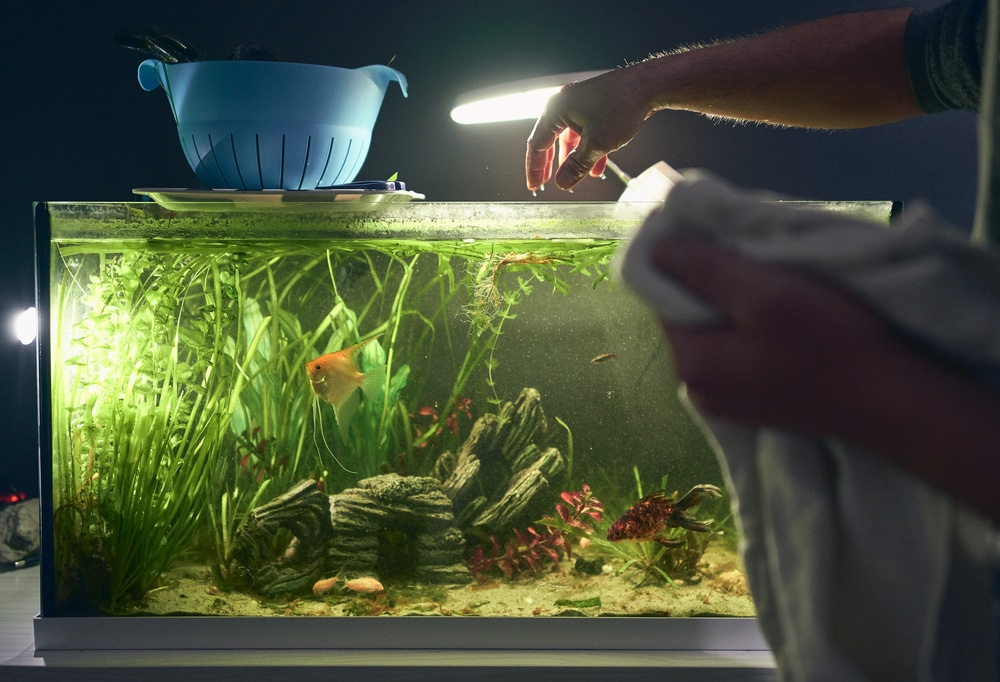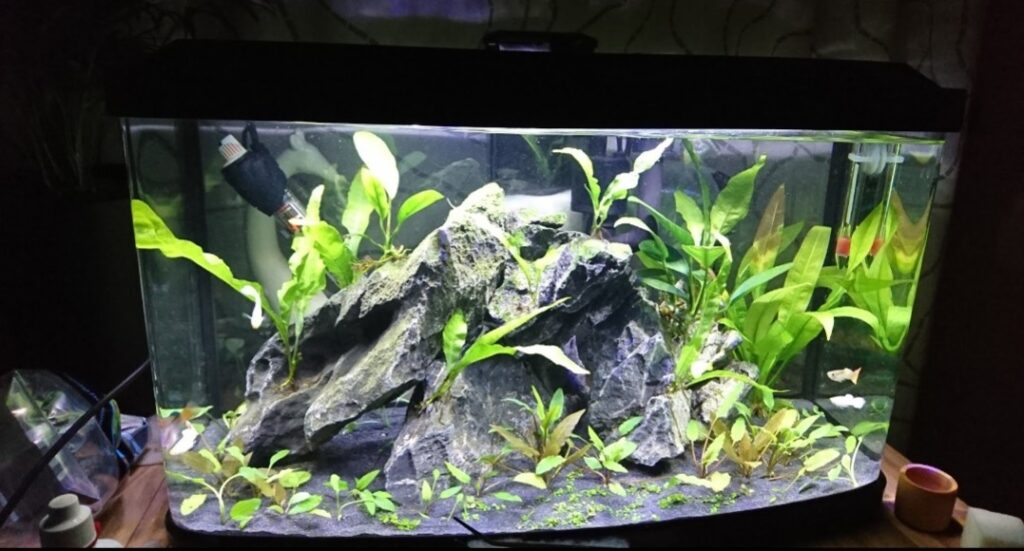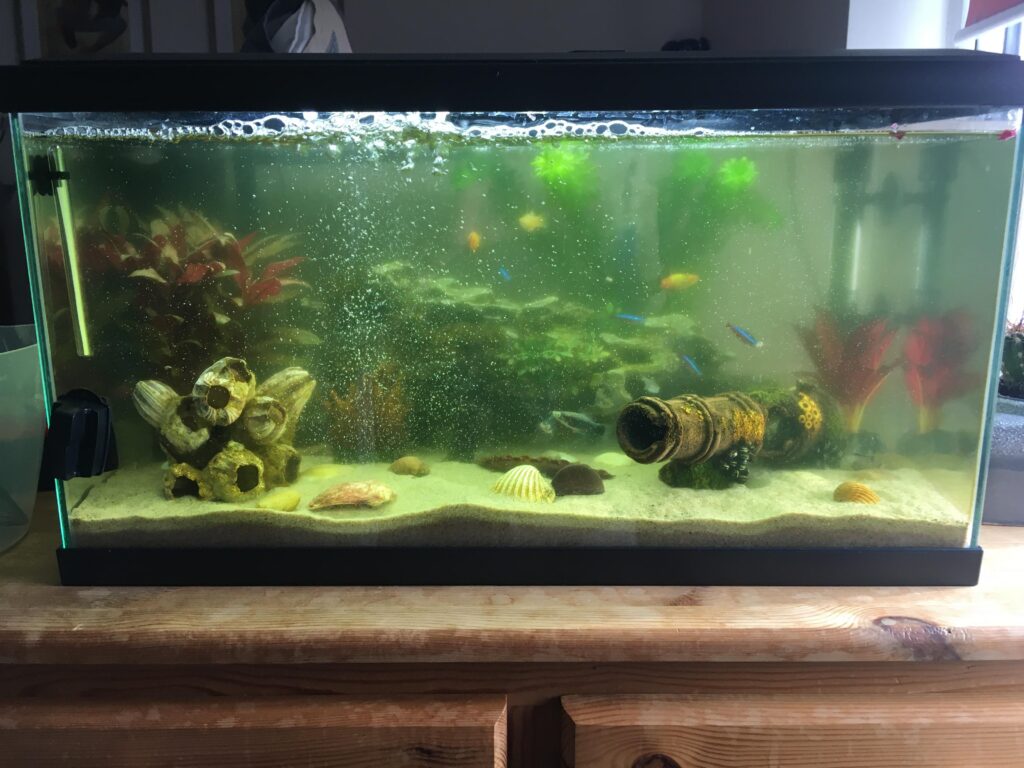Having a fish tank can be a delightful addition to your home or office space. However, one common issue that many fish tank owners face is an unpleasant smell emanating from the tank. But fear not! In this article, we will explain the causes of fish tank odors and provide you with practical tips to prevent and eliminate them, ensuring a fresh and pleasant environment for your fish.

Importance of Maintaining a Clean and Odor-Free Fish Tank
Proper maintenance of your fish tank is crucial not only for the well-being of your fish but also for creating an enjoyable viewing experience. An unclean tank not only emits foul odors but can also lead to health issues for your fish, such as infections and poor water quality.
Taking the necessary steps to prevent your fish tank from smelling will result in a healthier, happier aquatic environment for your finned friends.
Identifying the Causes of a Smelly Fish Tank
Understanding the root causes of fish tank odors is key to effectively combating them:

Anaerobic Activity
Anaerobic activity occurs in low-oxygen areas of your aquarium, like deep in the substrate, producing hydrogen sulfide with a noticeable smell.
This can lead to fish tank smells that are unpleasant. To prevent this, maintain proper substrate care and avoid overfeeding, which causes excess food and uneaten fish food to sink into the substrate.
Bogwood and Aquarium Driftwood
Bogwood and aquarium driftwood can enhance the aesthetics of your freshwater tanks but can contribute to fish tank smells if not properly managed.
These natural elements can release tannins and other compounds that cause a noticeable smell. Proper preparation, such as soaking the wood before adding it to fish tanks, helps minimize this issue.
Poor Water Quality
One of the primary culprits behind a smelly fish tank is poor water quality. Over time, waste products such as uneaten food, fish waste, and decaying plant matter can accumulate, leading to an increase in ammonia levels and foul odors.
Overfeeding
Overfeeding your fish can contribute to excessive waste production, contributing to the buildup of organic matter in the tank. This can cause not only foul odors but also negatively impact the water quality and the overall health of your fish.
Accumulation of Waste
Waste from your fish, including feces, can quickly accumulate in the tank if not properly removed. This waste breakdown releases harmful gases and can cause a strong odor.
Lack of Filtration
A poorly functioning or inadequate filtration system can fail to remove waste and debris from the tank, leading to an increase in harmful substances and foul odors.

Addressing the Issue: How to Prevent Fish Tank Odors
Now that we understand the causes, let’s explore some practical steps to prevent fish tank odors:
Regular Water Changes and Proper Maintenance
Performing regular water changes is essential for maintaining optimal water quality and preventing odors.
Aim to change approximately 20% of the water every one to two weeks, removing any debris and waste during the process. Additionally, regularly clean the tank’s glass, decorations, and substrate to eliminate any potential sources of odor.
Regularly vacuum the substrate to remove leftover food and organic debris. Promote aerobic activity by ensuring adequate oxygenation through air stones, proper filtration, and regular water changes.
Removing dead fish, fish poop, and dead plants promptly helps maintain a healthy environment and prevent a very bad smell in your fish tanks.
Feeding Fish in Moderation
Ensure that you are feeding your fish the correct amount of food and avoid overfeeding. Removing any uneaten food after a few minutes will help minimize waste production and prevent foul odors.
Proper Filtration System
Investing in a reliable filtration system suitable for the size of your tank is crucial. A good filtration system will effectively remove waste, toxins, and debris, maintaining a clean and odor-free environment.
Cleaning and Scrubbing Tank Decorations and Substrate
Regularly clean your tank decorations and substrate to remove any accumulated waste or algae. Use a soft brush or sponge to scrub away any debris, ensuring a pristine environment for your fish.
Fish Mucus
Fish mucus is a protective layer covering fish, helping shield them from pathogens and parasites. In freshwater tanks, poor water quality and overstocking can lead to excess mucus production, contributing to fish tank smells.
Factors such as stress and having too many fish can cause fish to produce excess mucus. Dead fish and excess food left in the tank can degrade water quality, increasing mucus production and causing a very bad smell.
Proper tank maintenance, including regular water changes and removal of uneaten fish food, fish poop, dead plants, and leftover food, is essential to managing mucus levels and preventing odors. Ensuring that all the food provided is consumed can also help maintain water quality and reduce the likelihood of a fish tank smell.
Natural Remedies to Combat Fish Tank Odors

In addition to regular maintenance, you can also incorporate natural remedies to combat fish tank odors:
Using Activated Carbon
Activated carbon can be added to your filtration system to help remove impurities and absorb odors. It is an effective natural solution to maintain a fresh-smelling tank.
Incorporating Live Plants
Live plants not only add beauty to your fish tank but also help to absorb excess nutrients and reduce ammonia levels, resulting in a healthier tank and reduced odors.
Introducing Beneficial Bacteria
Beneficial bacteria supplements containing nitrifying bacteria can help break down organic waste and convert harmful ammonia to less toxic substances, ultimately reducing fish tank odors.
Troubleshooting Common Fish Tank Odor Problems
If you are still experiencing persistent odors despite following proper maintenance protocols, consider the following troubleshooting steps:
Dealing with Persistent Odors Despite Proper Maintenance
If foul odors persist, check your filtration system for any malfunctions or deficiencies. Consider replacing old media or upgrading to a more efficient filter if necessary.
An overgrowth of algae can contribute to unpleasant odors. Ensure proper lighting duration and intensity, and regularly remove any excessive algae growth through manual cleaning or by introducing algae-eating fish.
Preventing Bacterial Bloom and Associated Smells
If bacterial bloom is causing odors, consult with an aquatic specialist for guidance on water treatment and maintaining a healthy bacterial balance in your tank.

Conclusion
Maintaining a fresh and pleasant fish tank environment is essential for the well-being of your fish and your own enjoyment.
By understanding the causes of fish tank odors and implementing proper maintenance techniques, such as regular water changes, feeding in moderation, and utilizing adequate filtration systems, you can prevent and eliminate odors.
Incorporating natural remedies and troubleshooting common odor problems will ensure an odor-free and thriving aquatic habitat for your fish.


